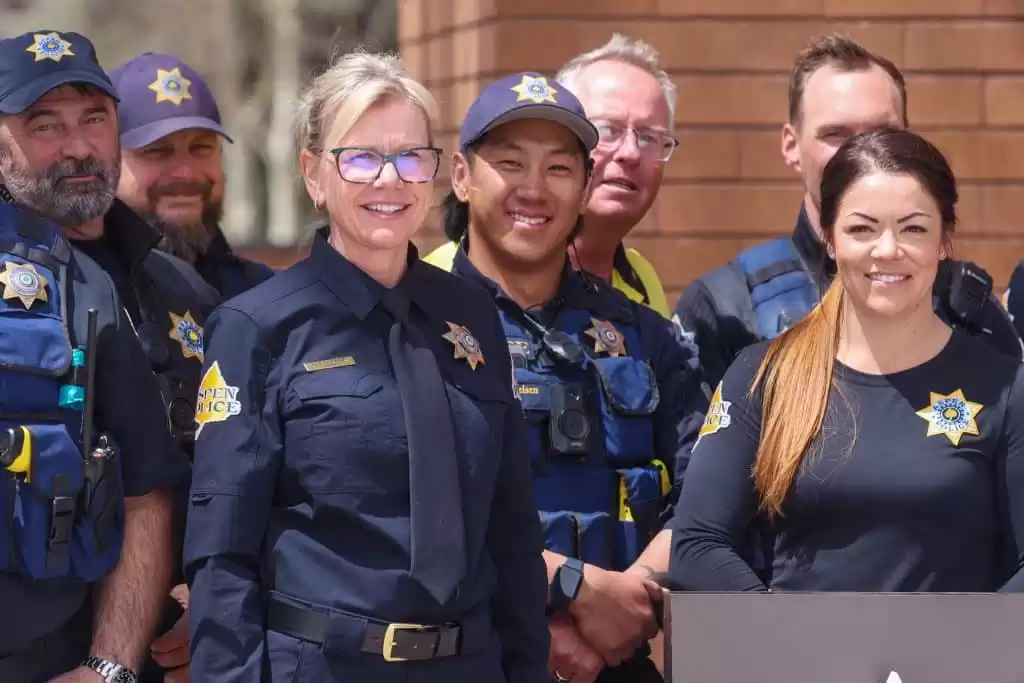Aspen Police and City Collaborate to Analyze Phone, Tablet, and License Data
Aspen City Council discusses the balance between law enforcement's need for technology and protecting citizens' 4th Amendment rights.
During the Aspen City Council's work session on Monday, an important discussion took place regarding the balance between the need for law enforcement to track suspects and the protection of individuals' 4th Amendment right to privacy.
Aspen Police Chief Kim Ferber began by presenting statistics that showed a slight decrease in crime rates. She also announced that a new hire would be joining the police academy in January. Chief Ferber highlighted the implementation of a new technology called SmartForce, which proved to be instrumental in directing and tracking bike and foot patrols throughout the summer.
Another significant development discussed was the creation of a new position called Digital Forensics Expert. This expert would utilize technology to gather data from various devices such as cellphones, license plate readers, and tablets. This raised concerns about whether the laws were keeping up with the advancements in technology and if they were adequately protecting individuals' rights against unreasonable searches and seizures as guaranteed by the 4th Amendment.
When questioned about the alignment of laws with technology, Chief Ferber acknowledged that courts were increasingly scrutinizing requests for warrants. However, this did not address the specific issue of obtaining information from electronic devices without a warrant and the potential legal challenges it may face.
One council member provided examples of successful instances where technology had aided in apprehending suspects. However, they also welcomed further discussion on the underlying legal principles involved.
The use of license plate readers was highlighted, particularly in the case of Bryan Kohberger, who is accused of killing four Idaho university students. These readers were instrumental in tracking his movements as he traveled across the country. Similarly, license plate readers helped the Aspen police in tracking a local man who had allegedly assaulted his wife and kidnapped one of their children as he entered New Mexico.
A significant legal precedent was discussed during the session, namely the U.S. Supreme Court's ruling in Carpenter v. United States (2018). In this case, the justices ruled 5 to 4 that the 4th Amendment protections extend to cellphones. Chief Justice John G. Roberts, Jr. emphasized that cellphone data collected by most providers provides a detailed record of an individual's physical presence over an extended period. Therefore, accessing such data would require a warrant.
Chief Ferber also mentioned that Detective Lauren Turner had implemented standardized evidence processing procedures, which aimed to enhance the ongoing accuracy in a high liability area.
Overall, the Aspen City Council's work session delved into the complex interplay between law enforcement's need for effective tracking methods and the protection of individuals' rights to privacy. The discussions highlighted the importance of ensuring that laws keep pace with technological advancements while upholding constitutional safeguards.











Comments on Aspen Police and City Collaborate to Analyze Phone, Tablet, and License Data